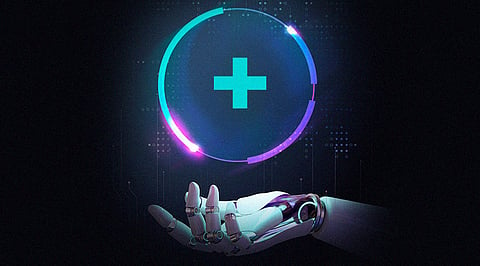

Artificial intelligence is a highly popular trend in the healthcare industry, especially the outbreak of the disastrous COVID-19 pandemic. AI in healthcare has generated some of the top machines to help to cure patients as well as boost productivity in hospitals. Robotics in healthcare provided robotic arms, and medical robots to help in surgeries and teach practical syllabus to residents. Artificial intelligence is set to take over the healthcare industry in the nearby tech-driven future. Governments of different countries have started allocating funds of millions of dollars for investing in applications of AI in healthcare. Let's explore some of the best ways in which AI is revolutionizing the healthcare industry in the 21st century.
Seamless diagnosis processes: The first step of admitting to any hospital is going through some diagnosis processes for any disease to move forward with the usual steps. AI in healthcare has provided some seamless diagnosis processes that can detect multiple diseases while analyzing 3D scans with deep learning and artificial intelligence. The results are as accurate as professional doctors while sometimes, AI can detect symptoms that are invisible to the human naked eyes.
Better administrative department: Leveraging artificial intelligence in the healthcare industry has enhanced the administrative department in several hospitals. Nurses and other medical staff can avoid overlapping duties, can receive alerts which rooms are empty, which floor is overcrowded, which patients need support, time for patient transfer, automating entry of medical records, surgical scheduling, and medicine alerts efficiently and effectively.
Efficient drug discovery: AI in healthcare has created ample opportunities for drug discoveries of many chronic and harmful diseases efficiently and effectively. Artificial intelligence has helped doctors and scientists to create vaccines for providing protection against the COVID-19 virus. The pharmaceutical industry is booming in the healthcare industry for accurate drug design, screening process, product development, and many more.
AI-inclusive diagramming: Researchers have mixed AI with blood testing as well as CT lung to accurately predict the number of newly diagnosed COVID-19 patients who need a mechanical ventilator. The AI model is known as CIAIN for clinical.
Accurate patient treatments: Leveraging AI in the healthcare industry can relieve doctors from grave mistakes such as drug overdose, wrong combinations, or providing allergic medicines to patients due to the effective storage of medical records and patterns in the Cloud.
Surgical assistants: Leveraging robotics in the healthcare industry has helped multiple doctors in critical operations with robotic surgical assistants. These medical robots extend a hand for help during tough times in operation rooms. Meanwhile, they can also teach virtual surgeries on virtual patients to current residents without risking the lives of real patients.
Virtual health assistance: There are virtual health assistants or medical health assistants to provide virtual health assistance to provide reminders to patients to take medication, reminders to doctor's appointments, advice for common ailments and symptoms, suggestions for diets and healthy routines, and many more.
Telemedicine: The implementation of robotics in the healthcare industry with artificial intelligence has created a wide opportunity for telemedicine, especially in the post-pandemic scenario. Telehealth and telemedicine have helped patients to restrict traveling and stand in a long line in hospitals in this COVID situation. The patients can contact doctors through robots and smart devices to keep up with the regular check-ups and appointments. They can receive medicines through some home delivery mobile applications.
